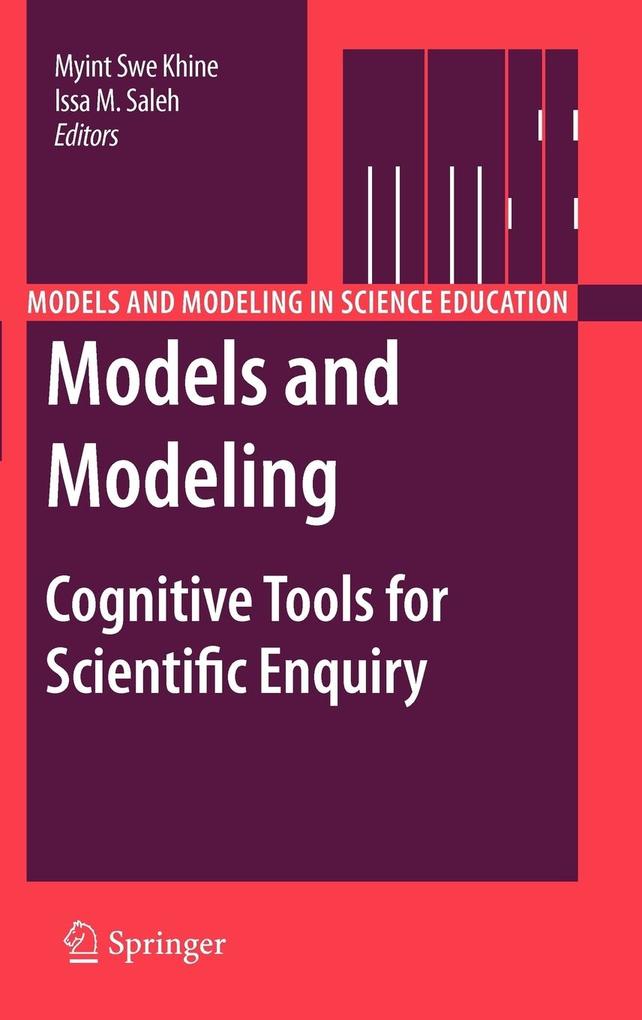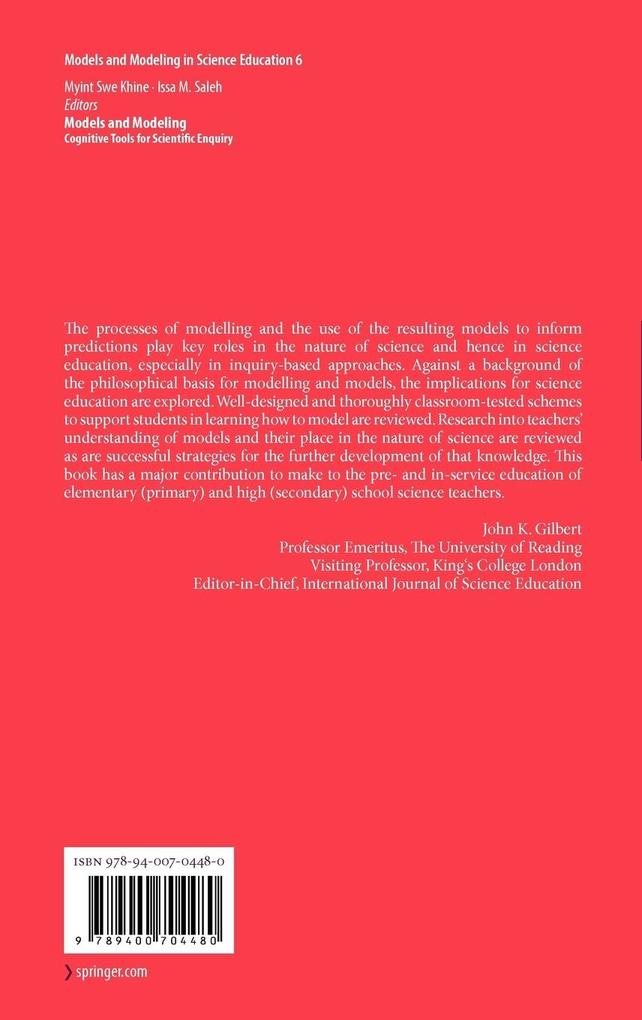
Zustellung: Mi, 04.06. - Sa, 07.06.
Versand in 1-2 Wochen
VersandkostenfreiBestellen & in Filiale abholen:
This text is a comprehensive introduction to the use of models and modeling in science education. It identifies and describes many different modeling tools and presents recent applications of modeling as a cognitive tool for scientific enquiry.
The process of developing models, known as modeling, allows scientists to visualize difficult concepts, explain complex phenomena and clarify intricate theories. In recent years, science educators have greatly increased their use of modeling in teaching, especially real-time dynamic modeling, which is central to a scientific investigation. Modeling in science teaching is being used in an array of fields, everything from primary sciences to tertiary chemistry to college physics, and it is sure to play an increasing role in the future of education.
Models and Modeling: Cognitive Tools for Scientific Enquiry is a comprehensive introduction to the use of models and modeling in science education. It identifies and describes many different modeling tools and presents recent applications of modeling as a cognitive tool for scientific enquiry.
Models and Modeling: Cognitive Tools for Scientific Enquiry is a comprehensive introduction to the use of models and modeling in science education. It identifies and describes many different modeling tools and presents recent applications of modeling as a cognitive tool for scientific enquiry.
Inhaltsverzeichnis
PART I - Theory Formation and Modeling in Science Education. - Chapter 1. Modeling and the Future of Science Learning, Richard K. Coll, Denis Laijum. - Chapter 2. A Study of Expert Theory Formation: The Role of Different Model Types and Domain Frameworks, Allan Collins. -Chapter 3. The Nature of Scientific Meta-Knowledge, Barbara Y. White, Allan Collins, John R. Frederiksen. - Chapter 4. From Modeling Schemata to the Profiling Schema: Modeling across the Curricula for Profile Shaping Education, Ibrahim A. Halloun. - PART II Modeling and Student Learning in Science Education. - Chapter 5. Helping Students Construct Robust Conceptual Models, Colleen Megowan-Romanowicz. - Chapter 6. The Molecular Workbench Software: An Innovative Dynamic Modeling Tool for Nanoscience Education, Charles Xie, Amy Pallant . - Chapter 7. Lowering the Learning Threshold: Multi-Agent-Based Models and Learning Electricity, Pratim Sengupta, Uri Wilensky. - Chapter 8. Engineering-based Modeling Experiences in the Elementary and Middle Classroom, Lyn D. English, Nicholas G. Mousoulides. - Chapter 9. Engaging Elementary Students in Scientific Modeling: The MoDeLS 5th Grade Approach and Findings, Hamin Baek, Christina Schwarz, Jing Chen, Hayat Hokayem, Li Zhan. - PART III Modeling and Teachers Knowledge. - Chapter 10. Relationships between Elementary Teachers Conceptions of Scientific Modeling and the Nature of Science, Valarie L. Akerson, Orvil White, Huseyin Colak, Khemmawaddee Pongsanon. - Chapter 11. Science teachers knowledge about learning and teaching models and modeling in Public Understanding of Science, Ineke Henze, Jan H. van Driel. - Chapter 12. Teaching Pre-serviceElementary Teachers to Teach Science with Computer Models, Nicos Valanides, Charoula Angeli. - Subject Index.
Produktdetails
Erscheinungsdatum
11. März 2011
Sprache
englisch
Auflage
2011 edition
Seitenanzahl
292
Reihe
Models and Modeling in Science Education
Herausgegeben von
Myint Swe Khine, Issa M Saleh, Isa M. Saleh
Verlag/Hersteller
Produktart
gebunden
Abbildungen
VIII, 292 p.
Gewicht
594 g
Größe (L/B/H)
242/164/30 mm
ISBN
9789400704480
Entdecken Sie mehr
Bewertungen
0 Bewertungen
Es wurden noch keine Bewertungen abgegeben. Schreiben Sie die erste Bewertung zu "Models and Modeling" und helfen Sie damit anderen bei der Kaufentscheidung.











